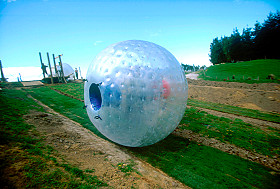
Do you ever stop to wonder why we need someone to prove to us something that we innately know to be true?
We tend not to believe certain facts until and unless someone with credentials proves to us that they represent a truth. The proof comes from spending years of their life deciphering the concepts, followed by research papers, book/s on the topic, and that’s when we can safely say “Oh yeah, that’s right.
Now let me apply this to our education system: why has it taken us so long to believe that “one-size-fits-all” education does not work for all students? As educators, could we not see the differences in students and their response to different learning techniques? Of course we could. A teacher clearly sees in her/his classroom the differences in the way that students learn. So why did we have to wait until myriad of theories of learning were “conducted” before we believed in them?
For example, Stanford University psychologist Carol Dweck came out with her famed book, Mindset, to show us that how we (students, children, adults) think can stop us from achieving success. Did we really need her to spend years of her life to convince us of that? Did we not already know this about ourselves – that our negative thoughts get us negative results?
Once we get to the “Oh yeah, that’s right” stage, we try to move fast. We mobilize. We have champions. Suddenly, all kinds of people become “experts” on the topic.

We try to incorporate their findings quickly into action to show our willingness to be early adopters, as well as forward thinking educators/people. This is when administrators et al. get on the bandwagon and force our teachers to incorporate the “new trend” into their teaching. The ball rolls! Does this sound familiar? The pendulum suddenly swings.
A second example is the nature vs. nurture debate, which has us spinning in a vortex. This debate continues and has us locked in position. Is it nature or nurture? Nurturing can really make a difference in student success, whereas sometimes nature cannot be ignored. What we do know is that there is something to be said for both. Is creativity learned or are you born with it? What we say about the three year old who can play an instrument? Play chess? Read?. Can you be a skilled basketball player even if you are not tall? Is learning style true phenomena or not? We know the truth yet we continue to wait for someone to tell us what to do.
Well folks, the aggressive push for adoption of new standards/trends implemented with an one-way-to-do-it-mentality will backfire, with some teachers resisting implementation requests or ignoring the value of the “real thing.” Or teachers simply find that they don’t know what to do with the “new paradigm,” so they stick with what they think works. Did we not learn from No Child Left Behind? More seriously, what happens to the children that are being “experimented on” with? Who takes responsibility for their learning if it does not work?
Why is that we waste so much time tracking the latest research and trends when we can make the most progress by focusing on the advances that support what we innately know enhance the learning process? Or, to put it in the simplest terms, just trying to do the best we can with each student with different possibilities and tools, hence giving them a chance to reach their dreams? You never know which dart will hit the mark! Give the teachers many ways and the leeway to work with many tools. Lets empower the teacher to teach and the tools to help the student to learn!

